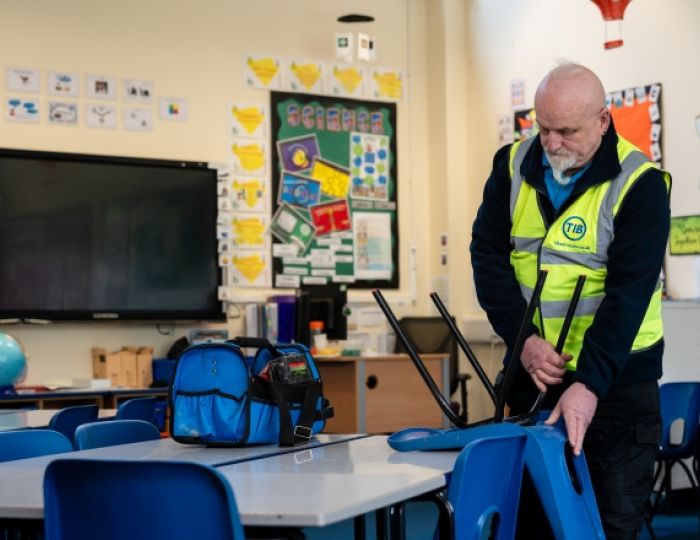Many of the typical sources of extra income for schools dried up during the last academic year due to social distancing measures and fears of infection. You were likely unable to hire out your facilities, your income from school meals and clubs might have dropped and summer fairs were likely cancelled too. You will also likely have had additional expenditure on personal protective equipment (PPE), signage, additional cleaning etc.
It might not be all bad news though. The government continues to fund schools as normal and you may have now received additional funding to cover some coronavirus-related extra costs related to deep cleaning, free school meals, opening during holidays (and certain other extraordinary expenses, in some cases). Also, you might have made some savings along the way, such as from reduced utility bills.
Consider all these points when you’re figuring out how much deficit you’re faced with. Although it might feel quite soon to start thinking about income generation while you’re still taking your first steps on the road to normalcy, it’s worth exploring the subject early on.
Involve the community, where you can
Try to think beyond the usual fundraisers. You could, for example, ask for direct contributions. This is fine to do, so long as you’re clear to parents that it’s voluntary. While there’s a great deal of financial hardship arising from the pandemic, that’s not the case across the board. Some people in your community might be willing to donate the cost of their weekly commute or the cost of their daily coffee or lunch. If donations are going to a charity you’ve set up, like a PTA, make sure Gift Aid is being claimed - it takes less admin and effort to do this if you set up donations through an online fundraising site.
You could ask parents to check with their employers for ‘match funding’ programmes. In these programmes, employers match funds raised by their employees for charities or community groups (often up to a certain limit).
You could also get your community to volunteer and do work that you might otherwise have to pay for. If you have any parents who are builders, might they be able to help fix the school fence out of good will? Do any parents have website management or editing skills, and are they willing to donate some time to update the school’s website, so you don’t have to pay an external person?
1. Use fundraising websites
Sites that offer “cash back” to schools for online purchases are definitely worth exploring right now. Shops may have reopened, but there’s no question that online shopping is here to stay. These cash-back programmes allow purchasers to designate a charity - like a PTA - to receive a portion of each sale. Some examples include Easy Fundraising (https://bit.ly/3mpPt0k), School Fundraising (https://bit.ly/3hxGZk4) and AmazonSmile (https://org.amazon.co.uk/).
2. Apply for grants and other funding opportunities
There’s an array of funding opportunities that schools can apply for, as well as freebies you can take advantage of. Research which ones might be relevant for your school, being sure to note any deadlines so that you can get your application in on time.
3. Think strategically for the long term
It’s worth developing a coordinated strategy for generating income. This can help you avoid a scatter-gun approach, which is both inefficient and ineffective. Consider all of the factors below when you’re creating your strategy to maximise income and minimise risk.
4. Stay true to your vision and ethos
Make sure that any potential partnership aligns with your school’s vision and values. A lot of common sense goes into this. Before you enter into any partnership, make sure you know exactly what the other party does and how they market themselves.
5. Consider resource implications
Some potential partnerships could have more hidden costs than possible income. Before you consider any commercial relationships, make sure you’ve thought about any hidden costs and resource implications. Ask yourself the following questions: are there going to be additional cleaning costs as a result of this partnership? What about extra caretaking costs because you need someone on site to open and close the school? Will this partnership result in additional wear and tear on the building or any of the equipment? Will we need to get additional insurance or incur extra legal costs in order for this activity to be done on our property? Will there be any workload implications for school staff?
6. Hiring out your premises
If your school is new to this, you can lay the groundwork by checking the providers are suitable and in line with your school values (as explained earlier). Then take legal advice and talk to your insurance provider about the potential risks and liabilities specific to your context. Finally, all being well, put together a premises hire policy and develop a marketing plan that includes which facilities to hire out and for how much.
7. Maximise per-pupil funding
Attracting pupils to your school is the most obvious way to maximise income, since funding follows pupils. Also, make sure you’re getting all pupils who qualify for free school meals (FSM) signed up, to secure all the pupil premium funding you should be getting.
8. Try a range of different methods
Try not to rely on just one source of income. Along with the more traditional fundraising done by the PTA, a well-designed strategy might include fundraising online, outsourcing your staff members’ expertise and hiring out the school premises, once it’s safe to do so.
Consider selling services
- You may have staff with specialist skills that might be especially useful. For example, a deputy headteacher at a school with a successful sixth form can offer advice on post-16 provision elsewhere. Or HR and premises officers at a large secondary school might advise the headteacher at a feeder primary school.
- Before you take this route, think about the following: are staff covered by your school’s existing insurance arrangements when doing consulting work for another school (e.g. professional indemnity insurance)? What’s the maximum amount of time staff can spend away from school or work outside their core role, and who can approve this? Will staff be paid extra for any kind of consultancy work? Make sure you seek HR advice and agree a clear policy.
Linda Unternahrer is a Content Editor at The Key. The advice in this article was taken from The Key’s resource School reopening: ways to raise money.










